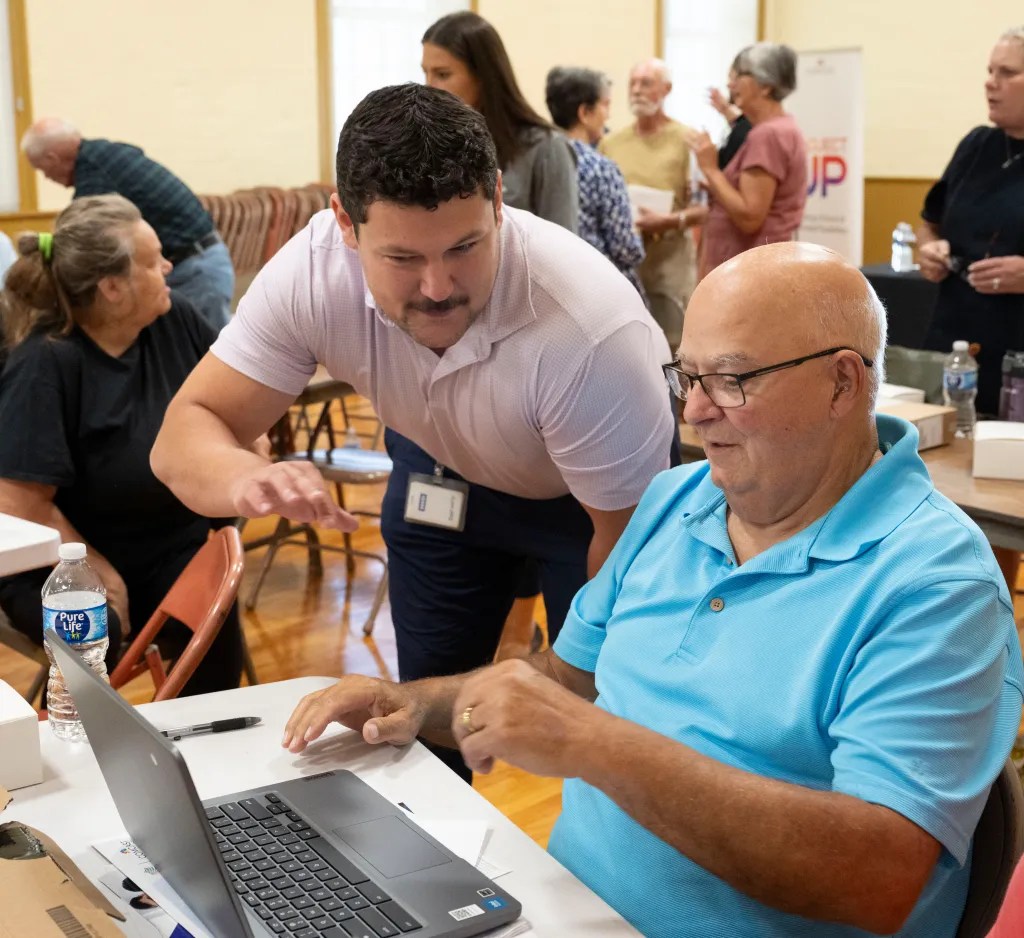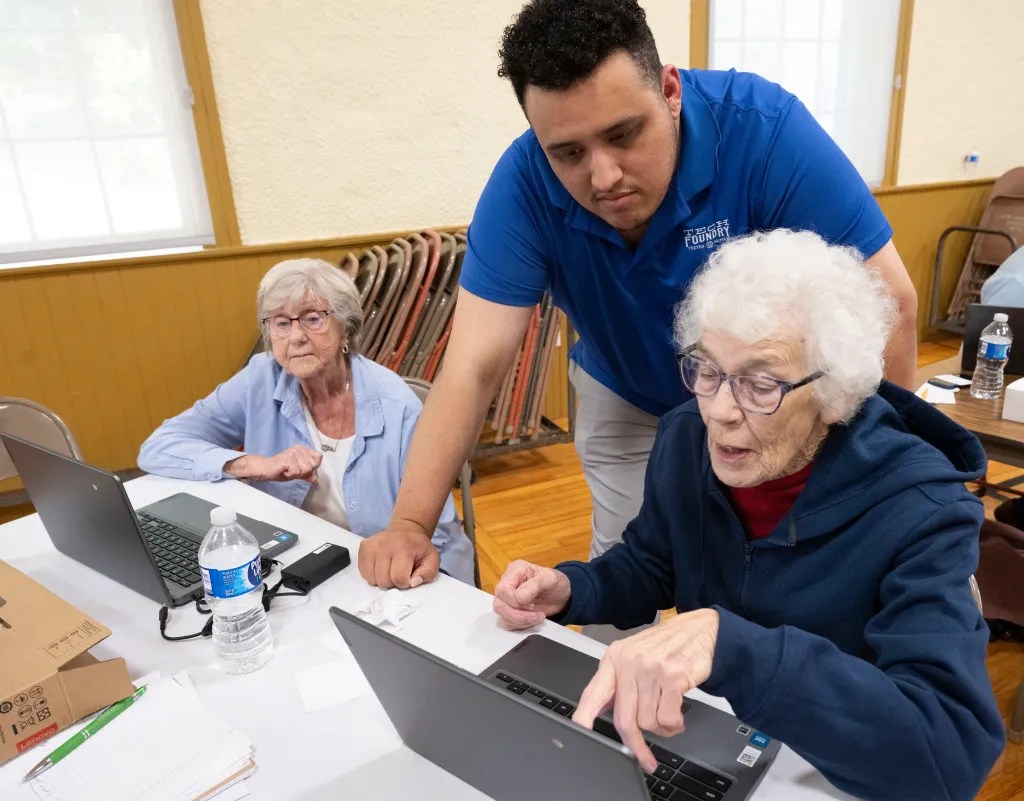WESTHAMPTON — Comcast representatives joined by state Rep. Lindsay Sabadosa visited Westhampton Town Hall on Thursday to announce it will provide free Wi-Fi to the Woods Senior Housing complex while handing out free laptops to visitors.
The announcement comes as a part of Comcast’s new Lift Zone initiative, aiming to provide free Wi-Fi to communities across the country. About 20 residents attended the event, all receiving free laptops, while learning internet fluency skills through a presentation educating about online scams.
“I am really excited about this initiative,” said Sabadosa. “It has been a priority of mine to make sure every person in my district has internet access. That was not the case when I was elected.”
The Woods Senior Housing complex will be the 77th Lift Zone location in Massachusetts. Comcast’s increased efforts are part of the larger initiative, Project Up, dedicating $1 billion to connect people to the internet.
The Woods complex is a hub for senior programs. Christine Blakesley, coordinator of the Westhampton Council on Aging, hopes the internet access will provide more digital learning opportunities for local seniors.


“The Lift Zone is a game-changer for our seniors, especially when paired with a hands-on cybersecurity session, which helped participants better understand how to navigate the internet, as well as recognize and avoid scams,” she said in a statement after the event.
While Sabadosa lauded the importance of providing Wi-Fi in the district, she also emphasized the importance of educating the public on how to safely navigate the internet as well.
Dan Glanville, Comcast’s vice president of government affairs and community impact for the New England region, is a lifelong western Massachusetts resident. He feels it is important to boost high-speed internet to create more access to resources.
“It provides access to high-speed internet at no cost, at really a digital literacy learning opportunity for everybody who utilizes it,” Glanville said at the event about the Woods complex. “It has the capacity due to the fiber connectivity to have all of you connected at once at high speed, taking advantage of what is available there.”
Glanville noted cybersecurity scams have been a circulating issue recently. He too has been a victim of internet scams in the past.
“About five years ago, it said on my email that I had a voicemail,” he said, detailing he clicked on the link. “As I did it, I knew I did something I shouldn’t have. The corrective measure, while it took me two seconds to do that (click), it took me about four weeks to change all my passwords.”
The virtual presentation about internet safety was given by Patrick McGranaghan, Comcast senior manager of security awareness, detailing the different types of scams under the umbrella term — phishing. Many scammers use social engineering, a method that aims to trick people by impersonating someone. According to McGranaghan, these scams aim to trick people into mistakes, since data from 2025 shows 60% of cybersecurity breaches involve human error, the same percentage as last year.
“There has been no shortage of cybersecurity breaches … but the ‘why’ side of criminals targeting us, and when I say ‘us’ I mean humans, is because unfortunately we’re the weakest link and that’s just the reality,” he said during the presentation.
McGranaghan said the top three scams that target older adults in 2025 include impersonations of tech support, government officials and use artificial intelligence (AI) to generate the voice of others. For example, AI scams may copy the voice of a family member claiming they need urgent financial aid or ask for other personal information.
He talked about common types of phishing that many people receive, including text messages that say you need to pay a road toll, phone calls of someone impersonating another person and email scams. A more recent type of scam called spear phishing, creates targeted message based on small bits of information from a quick internet search on a individual.
McGranaghan noted it is important to slow down before reacting to a scam message, to properly evaluate the message and make sure it is valid. Taking a moment to pause before reacting is key to not falling for scams. Strengthening passwords and refraining from clicking links from unknown sources is important to avoid scams.
According to the Federal Bureau of Investigation 2024 Internet Crime Report, information combined from 859,532 complaints of suspected internet crime reported losses exceeding $16 billion — a 33% increase in losses from 2023. As a group, people over the age of 60 suffered the most losses at nearly $5 billion and submitted the greatest number of complaints.
After the presentation, free laptops were handed out to all residents in attendance, with couples receiving one as a pair.
“I thought it was excellent, everyday I receive scam messages,” town resident Deb Barthelette said about the presentation. “We can’t protect ourselves enough.”
Barthelette also appreciated receiving a free laptop, “It was awesome, much appreciated.”
What to Read Next

